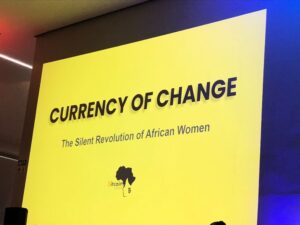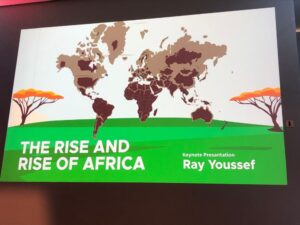On Jan. 26 and 27, African and international Bitcoin entrepreneurs, educators, developers, and enthusiasts gathered in Cape Town, South Africa for the Adopting Bitcoin conference. If a few words could summarize the event, they would be “human proof of work” in Bitcoin jargon or simply human energy.
Driven by the passion and belief that Bitcoin is the only alternative to the current global monetary system, participants could test some real use cases, innovations, and developments in the space, all guided by Joe Nakamoto’s brilliant introductions and enthusiasm.
South Africa has experienced a deep economic and structural crisis for years now. The end of the Apartheid did not bring the prosperity that most expected. According to the locals, the current government is not only corrupt but also inefficient and primarily incapable of leading the country. There needs to be an alternative, and here it is.
The Parallel Institutions
Known as parallel institutions, some autonomous organizations run the country and its infrastructure. Supported by millions of members, they do the work that should be done by the government.
Politically, they do not officially align with NATO or BRICS blocks, representing a tangible alternative to the global geopolitical power structure. The challenge of the South African Bitcoin community is to get these parallel institutions on board and adopt Bitcoin. Until there is no separation of money from the state, there can’t be truthful independence from central banking, central institutions, and ultimately from the central powers that run the world.
Unsurprisingly, the government does not recognize the parallel institutions, so they could shut down members’ bank accounts, silence them, and manipulate pro-active initiatives to their benefit. Hence, adopting open-source protocols like Bitcoin becomes essential, even vital, for these administrations to survive and thrive.
Bitcoin Ekasi

There are over 500 townships in South Africa, and some are still experiencing electricity and water shortages. Bitcoin Ekasi — a Zulu word for township — is the first non-profit organization that started a circular economy in the township of Mossel Bay (Southern Cape). Here, there are a dozen merchants accepting Bitcoin, and the locals spend the digital currency to buy food, surely, but also to top up their WiFi connection, mobile card, and electricity necessities.
Herman Vivier and his wife co-founded the Surfer-Kids non-profit organization in 2010. They then built Bitcoin Ekasi around it in 2016, inspired by the El Zonte circular economy in El Salvador, to empower the local kids by learning about Bitcoin and applying the ecosystem to their daily lives. This is the non-profit organization behind the creation of Adopting Bitcoin in Cape Town, literally a Bitcoin-based township is the fundamental structure that helped shape the conference.
Adopting Bitcoin
Two days of soul and blood pulsing, revealing and delving into the newest projects that will define the future of Bitcoin in Africa and the Global South. According to a World Bank report, Bitcoin is being adopted fast in Africa, where only 43% of the Sub-Saharan population has access to the banking system or mobile money. The rest have no access to money other than cash and Bitcoin.
Those who believe Africa cannot adopt Bitcoin enough because the Internet is still scarce should be aware of the latest Internet-free innovations brought to us by the inspiring local entrepreneurs versed in the regional drawbacks and have been working on solutions for years. Many of them attended the conference as speakers or workshop facilitators, and here are some highlights of the most exciting projects in the Bitcoin space, with some of their latest advancements launched at the conference.
The Non-Profit Projects
Non-profit initiatives to bring Bitcoin to the unbanked and the underbanked are proliferating everywhere in the continent. Bitcoin for Fairness was one of the first comprehensive tools created to raise knowledge and understanding of the Bitcoin ecosystem among the disadvantaged in Zimbabwe and Zambia.
The project’s founder, Anita Posch, has seven years of experience educating people on Bitcoin. At the conference, she talked about how she became involved in bringing more fairness to the global south and built a community of bitcoiners in local economies.
The ultimate goal is to empower the millions excluded by the current monetary system because of financial repression, authoritarian leadership in their countries, or because they are battered by excessive devastating inflation.
Echoing what Bitcoin Ekasi is doing in Mossel Bay, Humphrey Simwinga and Emmanuel Mangalashi launched Bitcoin Victoria Falls in 2023 to establish a circular economy in the region, also in partnership with the more experienced Anita Posch’s Bitcoin for Fairness.
Bitcoin Dada is another non-profit project ideated by Kenyan Lorraine Marcel to empower women in East Africa. It started expanding by simple word-of-mouth and a WhatsApp group that any woman could join to seek help. It soon became an instrument of self-determination and monetary independence through Bitcoin.

A Bitcoin Exchange
Machankura is a popular African tool for sending, receiving, and spending bitcoin at groceries and other shops. Founded by Kgothatso Ngako, It also allows users to send and receive bitcoin on any phone number without necessarily using a smartphone or the Internet through the USSD system (Unstructured Supplementary Service Data), a communications protocol used by GSM cellular telephones to communicate with the mobile network operator’s computers.
Currently live in Ghana, Kenya, Malawi, Namibia, Nigeria, South Africa, and Zambia, the USSD system will allow the company to expand across the whole continent to help especially those who do not have easy access to an Internet connection. During the conference, Kgothatso also announced the creation of Bitcoin Java Cards, enabling phones to be self-custodial hardware wallets. The Java cards are expected to be introduced in the market within a few weeks.
Mining Bitcoin in Africa
There is plenty of space for Bitcoin mining and energy saving in Africa. Jesse Pielke is a European expert in the energy sector and has become a Bitcoin mining consultant in recent years to highlight the opportunities that arise with the innovative use of energy sources. He convincingly affirms that the future of the energy supply is decentralized and advocates for more hashrate to be established in Africa through his company HashrateUp.
Abe Cambridge is a clean energy and blockchain entrepreneur who founded Sun Exchange in 2014 to bring a different approach to solar finance, using Bitcoin to resolve the energy crisis in Africa. The approach follows a simple method: investors buy solar cells through a crowd sale to generate energy for schools, businesses, and communities. They will then earn income by leasing the cells to these organizations and institutions.
Peer-To-Peer

Ray Youssef’s appearance on stage was as subversive as expected, with his presentation (pictured above) dubbed “The Rise and Rise of Africa.” His call for action and commitment resonates with the millions who want to change the global status quo and believe the first step is to shift the monetary system from a Fiat standard that empowers the 1% who own the world’s wealth to a Bitcoin standard that could drive the rest of the 99% out of poverty or survival stage.
According to Ray, peer-to-peer is the way to achieve the world’s wealth, and he’s been working on many projects that aim in that direction. Ray founded Civkit, a P2P electronic free market, and NoOnes, a super app and bitcoin marketplace that can be used by anyone, anywhere, and anytime without censorship for outright financial inclusion.
Bitcoin Education
Education is always at the forefront of the adoption of any new technology, and Bitcoin is no different. Kumi Nkansah is a popular radio broadcaster and digital marketer in Ghana. He began using his popularity to orange pill the nation, from educating people in the streets to bringing Bitcoin knowledge to government representatives along with his team, the Bitcoin Cowries.
Kumi told me one of the main obstacles to Bitcoin adoption is that local people believe it is a scam due to the multiple fraudulent activities perpetrated by fake traders and investors, especially in the altcoin space. However, the countless initiatives propagating across the continent will bring new confidence in Bitcoin and elevate its status to an alternative reliable monetary system that will help the disadvantaged.
Fedimint, introduced and deep-dived in a workshop held by Renata Rodriguez and Leon Johnson, is another project expanding in Africa to empower communities through federated applications while securing the individual’s privacy. These Fedimint federations are personal banks allowing individuals to transact in BTC anytime and anywhere globally. The project is still in the initial stage but could significantly impact the Global South by combining community participation, security, and privacy.
A Visit To The Townships
The conference was followed by a two-day trip to visit Bitcoin Ekasi and Witsand, another village in the Southern Cape where a circular economy is being built rapidly. Indeed, with only 500 permanent residents, the BTC map shows that this seaside village has one of the highest, perhaps the highest, per-capita adoption of Bitcoin in the world.
Bitcoin Ekasi’s non-profit organization brings together kids who want to learn or practice surfing in the beautiful Diaz beachside setting. Those same kids who attend higher school degrees have the chance to learn about Bitcoin and earn a Bitcoin diploma, so some of us who were at Bitcoin Ekasi watched a dozen kids being taught about money and why Bitcoin is an essential tool for their future and their savings.
The kids were then tipped with some sats on their Bolt cards and went on spending their bitcoin at the local grocery shop and buying food for themselves or their families.
It looks like the African continent could be at the forefront of Bitcoin innovation in terms of groundbreaking projects but also ahead of the rest of the world in relation to the adoption of a new monetary system. This would mean they can forthrightly bypass the banking infrastructure that some Bitcoiners view as the basis of many wrongdoings of centralized governments and institutions.










